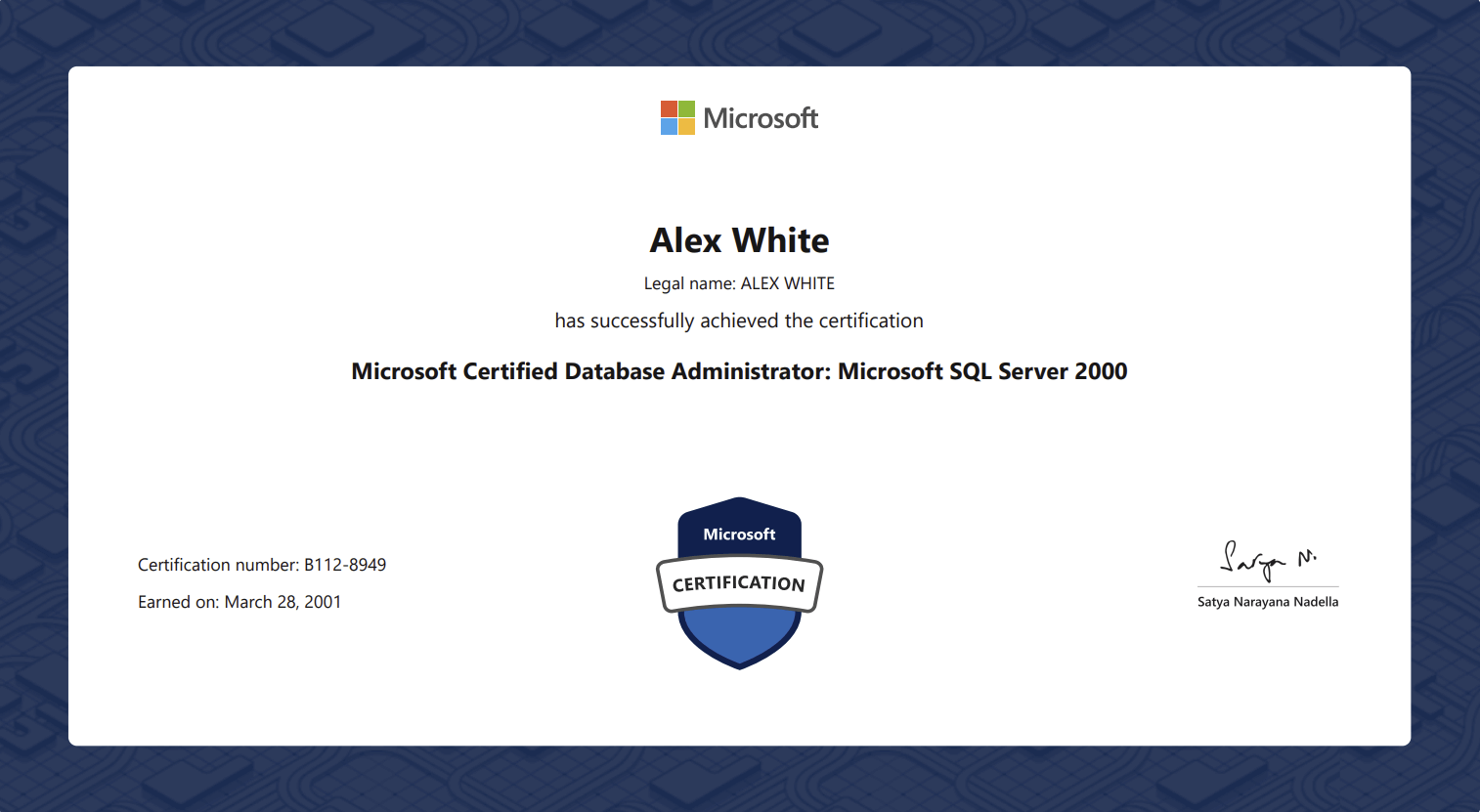Microsoft SQL Server.

Whilst I will talk about Microsoft SQL Server on this page, I am also happy working on PostgreSQL, SQLite, MySQL and Microsoft Access as well.
I have been a Microsoft Certified Database Administrator (MCDBA) for over 20 years, the qualification was retired by Microsoft a while back, but I have worked on all versions of Microsoft SQL Server from 6.5 all the way through to SQL Server 2025.
From installing and configuring the operating system, installing and configuration Microsoft SQL server, and then putting databases on the server, I am skilled in all areas of Microsoft SQL Server.
On the development side I have completely constructed many databases, designed the table layouts, indexes, stored procedures, triggers when necessary.
As a general rule the main reason for picking other database vendors other than Microsoft is licencing costs, the other big reason is platform to put the database on.
Microsoft SQL Express is my starting point for most projects because it's a zero cost option for the client in terms of licencing, allowing a simple path to upgrade to full Microsoft SQL server if you outgrow the free version limitations.
I have done a number of SQL Server assessments in the last few years, looking at potential performance issues, looking at things that can be improved without needing to re-write software, a big area of this is index management, I find a lot of developers know how to create a table, but when you look at the indexes only the primary key index exists, for small databases this is not normally a problem but for tables with thousands of row this can have a significant impact on performance.
Having a deep understanding of how queries work internally, how indexes get applied to those queries, makes a big difference in the performance of SQL Servers, table scans on large tables are the enemy, index seeks are the goal in a lot of cases. Normalisation and proper index management are key tenants of a well run and managed database.
Moving databases from one disk to another, one server to another, upgrading the SQL Server, applying service packs and patches is all work I have extensive experience in.
Backups, this seems an area that is often overlooked sadly, how robust is your backup procedure, is it in line with the companies expectations in the case of a failure?.